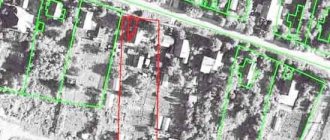Challenging the cadastral value of a land plot is an effective way to reduce the amount of land tax paid. This can be done by challenging the cadastral value of the property. The procedure is carried out judicially or administratively.
Land and real estate practitioners of KG ETALON have been providing legal services in Moscow and the Moscow region for more than 20 years. Our specialists have repeatedly successfully solved problems of challenging the cadastral value of real estate for their Clients and helped them save millions of rubles. The company's experts regularly monitor changes in legislation and apply them in their work.
With the entry into force of the Federal Law “On State Cadastral Valuation” in January 2021, cadastral valuation of real estate is carried out no more than once every three years, but not less than once every five years. In cities of federal significance, which includes Moscow, assessments are carried out no more than once every two years. Exceptions are situations when an extraordinary procedure is required. In practice, a new state cadastral assessment is carried out in Moscow once every two years, in the Moscow region - once every three years.
A legislative innovation on the merits of this issue was the Resolution of the Constitutional Court of the Russian Federation No. 20-P dated July 11, 2017. According to this document, it is possible to recover legal costs from government bodies that have established the cadastral value of a real estate property as too high, and this decision makes the challenge procedure cheaper for individuals or legal entity.
How to reduce cadastral value
By eliminating errors that were made during the state cadastral assessment of land plots.
The cadastral value turns out to be overestimated if arithmetic errors, typos, or methodological errors were made during the state cadastral valuation. To eliminate such errors, it is necessary to submit an appropriate appeal to the budgetary institution that carried out the state cadastral valuation. The application must indicate the cadastral number of the land plot, information about the applicant, and information about mistakes made. Documents confirming the presence of errors must be attached to the application.
The budgetary institution must consider the application within 30 days from the date of its receipt. If necessary, a budget institution may extend the period for consideration of an application for another 30 days.
At the same time, based on the results of consideration of the appeal, the budgetary institution does not have the right to increase the cadastral value (Part 16, Article 21 of the Federal Law of July 3, 2016 No. 237-FZ “On State Cadastral Valuation”).
If a budget institution refuses to correct an error made in determining the cadastral value, this refusal can be challenged in court (Part 22, Article 21 of the Federal Law of July 3, 2016 No. 237-FZ “On State Cadastral Valuation”).
If it's expensive and unfair. How to reduce the cadastral value of real estate. Expert advice
Where do the unrealistic numbers come from?
The cadastral value is established during the state assessment; this is done by state budgetary institutions (GBU). The work of specialists is always carried out remotely, without visiting the site (this is even physically impossible to do during a mass assessment of real estate), and therefore often does not take into account the specific features of the property, notes Sergei Volosnikov.
Sergey VolosnikovProvided by ANO NEB
In the Sverdlovsk region, the State Budgetary Institution SO "Center for State Cadastral Valuation" in 2021 assessed capital construction projects: buildings, premises, structures, unfinished construction, parking spaces. The assessment of land plots was carried out this year and will take effect in 2021.
Why is it so important to know about the cadastral value of a property?
The amount of property tax depends on its size. In addition, it affects the amount of rental payments for the use of state or municipal property. Therefore, the sooner you start correcting the error, the better.
Jaromir Romanov / Znak.com
How do you know how much you counted?
Information about how much the property is valued is recorded in the Unified State Register of Real Estate. At the first stage, after the cadastral assessment, 50 days are given to familiarize yourself with the draft report of the State Budgetary Institution. The draft report can be downloaded on the State Budgetary Institution website or on the Rosreestr website in the “State Cadastral Valuation Data Fund” section.
But we must warn you that searching for data is not as simple as it might seem. The report weighs tens of gigabytes: the document consists of several volumes and dozens of attachments. Even simply downloading such a document takes many hours. It is even more difficult for owners or tenants who are far from professional assessments to analyze such an array of data themselves, understand the calculation model, and then formulate comments.
What are the mistakes?
Claims must be justified, warns Sergei Volosnikov. They may indicate errors in the report or erroneous information about the characteristics of the property. State Budgetary Institutions post information on their website about comments received and comments from their side. When taking into account the comments, the State Budgetary Institution recalculates the cadastral value. And not only the object you need, but also others - neighboring or similar ones, in determining the value of which a similar mistake was made.
After the “grace period” has expired and after the results of the cadastral value have been approved, there remains one more budgetary opportunity to correct the cadastral value - if a typo, arithmetic or other error (possibly even methodological) is discovered in the report, which ultimately distorts the value of the cadastral value. In this case, you must contact the State Budgetary Institution or a multifunctional center with an application to correct errors made in determining the cadastral value.
Nail Fattakhov / Znak.com
They didn't hear you. What's next?
If the comments sent to the State Budgetary Institution are not taken into account and errors cannot be identified, you will have to move on to the next stage - start a dispute about the results of determining the cadastral value. To do this, you will have to involve an appraiser who will determine the market value of the property and draw up a report. And then there are two options: filing an application with a specially created commission or filing an application with the court.
The state does not like to admit its mistakes
The special commission that considers complaints about cadastral valuation includes eight people. In addition to officials and the business ombudsman, there are two representatives of the appraisal community, a representative of the Sverdlovsk Regional Union of Industrialists and Entrepreneurs, and a member of the employers' association - the Sverdlovsk Regional Union of Industrialists and Entrepreneurs. An appraiser's report must be attached to the application submitted to the commission.
Members of the commission study the report and make comments. Then a meeting is scheduled, to which the copyright holder, as well as a representative of the State Budgetary Institution, are invited. The participation of an appraiser is possible. At the meeting, the comments identified in the assessment report are voiced (usually most of them come from a representative of the State Budgetary Institution), after which all members of the commission present vote. The decision is made by a majority vote. Then it is published on the website of the Ministry of State Property Management of the Sverdlovsk Region.
“One of my fellow evaluators analyzed the work of the commission over six months and found that some members of the commission always vote against it. As a result, as paradoxical as it may sound, more than 80% of reports from professional appraisers are not taken into account. Members of the commission state that they do not comply with the assessment methodology and contain errors,” says Sergei Volosnikov.
last hope
After the commission makes a negative decision on the complaint (and this happens in the vast majority of cases), the only option left to reduce the cadastral value is to file an administrative claim with the Sverdlovsk Regional Court. In principle, you can go to court immediately, without going to the commission. When considering a dispute in court, administrative defendants and the State Budgetary Institution can also draw up comments on the report on determining the market value. After which the court will probably order a forensic examination and the final market value will be determined by a forensic expert.
Innovations
In August 2021, several changes to the law on state cadastral valuation No. 237-FZ came into force. Thus, from January 1, 2023, Article 22 “Consideration of disputes regarding the results of determining the cadastral value,” which defines the procedure for challenging in special commissions, loses force. That is, the current special commissions will be abolished. Instead, Article 22.1 “Establishing the cadastral value in the amount of the market value” appeared, suggesting an out-of-court procedure. That is, the complaint will be considered by the State Budgetary Institution itself. A transition period has been established until 2023, during which the head of the region can decide on an earlier transition to the new order.
Thus, an out-of-court procedure becomes mandatory, and only after a refusal by the State Budgetary Institution can you go to court.
Now the cadastral valuation will be carried out every four years, which means there will potentially be the possibility of new errors. Two campaigns will take place in the next two years. Thus, in 2022, all regions must conduct a mandatory cadastral assessment of land plots, and in 2023 - an assessment of capital construction projects
How to establish the cadastral value of a land plot in the market amount
Both individuals and legal entities have the right to use the pre-trial procedure for reducing the cadastral value.
In pre-trial order, you can challenge the cadastral value of a land plot by submitting an application to a special commission formed under the Rosreestr of the corresponding region of the Russian Federation. A refusal decision of such a commission may be challenged in court. A judicial challenge to the cadastral value consists of filing an administrative claim to establish the cadastral value of a land plot in the amount of the market value.
Before going to court, you must order a report on the market value of the land from a specialized appraisal organization. It is the value of the land plot indicated in the report that will be the basic indicator when drawing up and filing a claim in court.
Changes in challenging the cadastral value, signed on July 31, 2020 (Federal Law No. 269-FZ)
Dear Colleagues!
I present an overview of the agreements signed on July 31, 2020 by the President of the Russian Federation V.V. Putin. amendments to the Federal Law of July 3, 2016 No. 237-FZ “On State Cadastral Valuation” and a number of other laws regarding the procedure for challenging the cadastral value of real estate (Federal Law of July 31, 2020 No. 269-FZ).
Summary:
I. On plans for revaluation of the cadastral value of real estate in Moscow.
II. Changes in the Law “On State Cadastral Valuation”.
III. The relationship between the changes provided for by Law No. 269-FZ and the special rules of the CAS of the Russian Federation on challenging/recalculating the results of determining the cadastral value.
IV. In what order will it ultimately be possible to change the cadastral value of real estate during the transition period, i.e. until 01/01/2023.
V. Additional food for thought.
I. _ On plans for revaluation of the cadastral value of real estate in Moscow.
07.27.2020 Mayor of Moscow S.S. Sobyanin on his website www.sobyanin.ru reported:
“This year the Moscow Government will not conduct cadastral valuation of residential and commercial real estate. The 2021 cadastral value will continue to be used to calculate real estate tax amounts.
Why did I make this decision?
The law allows for cadastral valuation to be carried out at intervals of 2 to 5 years, but – ATTENTION! – as of January 1 . That is, in the cadastral valuation of 2021, it is impossible to take into account the impact of the COVID-19 pandemic, which no one had heard of on January 1” (https://www.sobyanin.ru/ekonomiya-4-mlrd-o-kadastrovoi-otsenke-nedvizhimosti -v-2020-godu).
The cadastral value for 2021 refers to the order of the Department of City Property of Moscow dated November 29, 2018 No. 40557 (as amended on June 22, 2020) “On approval of the results of determining the cadastral value of real estate in the city of Moscow as of January 1, 2021.” .
On the issue of conducting the next cadastral assessment of real estate Moscow Mayor S.S. Sobyanin promised to return in 2021. Additional food for thought on this issue is provided below (section No. 5).
With regard to challenging the cadastral value, firstly, it should be noted that in the message of Sobyanin S.S. We are talking about property tax and the cadastral value of capital construction projects. There has not yet been any clarification on the fate of the cadastral value of land plots and, accordingly, land tax.
Secondly, it is worth paying attention to the words “impact of the COVID-19 pandemic.” This year, this impact has affected most commercial real estate segments. Many employers have become interested in the possibilities of reducing office costs by transferring some of their employees to remote work. The number of vacant retail premises has also increased (https://cre.ru/analytics/80874). And the remaining tenants (from industries most affected by COVID-19) have the right to apply for a reduction/deferment of rent (for example, in accordance with the well-known Article 19 of the Federal Law of April 1, 2020 No. 98-FZ).
Along with a decrease in income from property management, its market value may also decrease. Therefore, against the backdrop of the Moscow Mayor’s announcement about the postponement of the revaluation of the cadastral value of real estate, the question of reducing it is quite obvious.
Challenging the cadastral value, as well as its initial establishment, is regulated by the Federal Law of July 29, 1998 No. 135-FZ “On Valuation Activities in the Russian Federation”, the Federal Law of July 3, 2016 No. 237-FZ “On State Cadastral Valuation” and the Code of Administrative Proceedings Russian Federation.
II . Changes to the Law “On State Cadastral Valuation”
07/31/2020 President of the Russian Federation V.V. Putin Bill No. 814739-7 “On Amendments to Certain Legislative Acts of the Russian Federation” was signed, which provides for changes to the norms on state cadastral valuation (Federal Law No. 269-FZ dated July 31, 2020, hereinafter referred to as Law No. 269-FZ). The bill was prepared by the Government of the Russian Federation and submitted to the State Duma in October 2021, adopted by the State Duma on July 21, 2020, and approved by the Federation Council on July 24, 2020 (https://sozd.duma.gov.ru/bill/814739-7). Law No. 269-FZ (with the exception of a number of its provisions) comes into force ten days after 07/31/2020, when it was officially published (https://publication.pravo.gov.ru/Document/View/0001202007310085).
One of the changes provided for by Law No. 269-FZ is the exclusion from the Law “On State Cadastral Valuation” of the rule on the procedure for challenging the cadastral value of real estate.
In accordance with the wording of Part 1 of Art. 22 of the Law “On State Cadastral Valuation” before the amendments made to it by Law No. 269-FZ, the results of determining the cadastral value can be challenged by legal entities and individuals in the relevant commission if it is created in a constituent entity of the Russian Federation or in court. To go to court, a preliminary application to the commission is not mandatory. The basis for challenging the cadastral value is an assessment report confirming the lower market price of the corresponding object as of the date as of which its cadastral value was determined (Part 7 of Article 22 of the Law “On State Cadastral Valuation”).
Law No. 269-FZ recognizes Art. 22 of the Law “On State Cadastral Valuation” (“Consideration of disputes regarding the results of determining the cadastral value”), which has become invalid and introduces Art. 22¹ (“Establishing cadastral value in the amount of market value”), which provides that the cadastral value of a building, premises, structure, unfinished construction site, parking space, land plot can be established by a budgetary institution in the field of state cadastral valuation in the amount of the market value of the corresponding of a property at the request of legal entities and individuals (with an attachment of an assessment report), if the cadastral value affects the rights or obligations of these persons (Part 1 and Part 5 of Article 22¹ of the Law “On State Cadastral Valuation” as amended by Law No. 269-FZ ).
According to Part 15 of Art. 22¹ of the Law “On State Cadastral Valuation” as amended by Law No. 269-FZ “the decision of a budgetary institution regarding an application for establishing market value may be challenged in court in administrative proceedings. Simultaneously with challenging the decision of a budgetary institution, a demand may also be submitted to the court to establish the cadastral value of a property in the amount of its market value.”
For the provisions of Law No. 269-FZ, recognizing Art. 22 of the Law “On State Cadastral Valuation” is no longer in force, and Art. 22¹ of this law, which came into force, established a transition period until 01/01/2023. The moment of refusal to apply Art. 22 and the beginning of application of Art. 22¹ of the Law “On State Cadastral Valuation” within the specified period is determined by the highest executive body of state power of each constituent entity of the Russian Federation independently (Part 2 of Article 6 of Law No. 269-FZ). If during this time the highest executive body of state power of a constituent entity of the Russian Federation does not make such a decision, the provisions of Law No. 269-FZ on the transition from Art. 22 to Art. 22¹ will come into force in this region on 01/01/2023. In any case, this transition can actually be carried out no earlier than the approval by the Ministry of Economic Development of Russia of the application form for establishing the cadastral value of a real estate property in the amount of its market value (Part 3 of Article 22¹ of the Law “On State Cadastral Valuation”).
Thus, in accordance with Law No. 269-FZ:
• the name of the action under consideration changes from challenging the results of determining the cadastral value (Article 22) to establishing the cadastral value of a property in the amount of its market value at the request of an interested person (Article 22¹);
• the final result and the basis for it remain the same as before (the cadastral value of the property is established in the amount of its market value, confirmed by the assessment report);
• regardless of the name of this action, the powers to implement it are redistributed from the relevant commissions to the budgetary institution;
• after the entry into force of Art. 22¹ is excluded (as intended by the legislator) contained in Art. 22 of the Law “On State Cadastral Valuation”, the opportunity to immediately go to court in order to change the result of determining the cadastral value (which, according to Part 1 of Article 248 of the CAS of the Russian Federation, is carried out by the court on the basis of the same determination of the market value of the object) bypassing the out-of-court option (which, according to Law No. 269-FZ is to send an application to a budgetary institution);
• the procedure for establishing the market value of a property is brought into uniformity with the procedure for correcting an error made in determining the cadastral value, regulated by Art. 21 of the Law “On State Cadastral Valuation” both in the current version and in the version of Law No. 269-FZ.
These conclusions are partially confirmed by the motives for preparing bill No. 814739-7, set out in the explanatory note (https://sozd.duma.gov.ru/bill/814739-7), paragraph three on the first page of which states: “With regard to the correction of accumulated errors in previously approved cadastral valuation results, the bill provides for the dissemination of norms for mass correction of errors provided for by the law on state bonds and involving the consideration by authorized authorities of constituent entities of the Russian Federation of requests from copyright holders to correct such errors, including through the existing network of MFCs, and their correction without the need to challenge the assessment results in court or a dispute resolution commission on the results of determining the cadastral value.”
You can also note that the concepts of “cadastral value” and “market value” are different and do not include one another (market value is not one of the types of cadastral value and vice versa; see paragraphs two and eight of Article 3 of the Law “On Valuation Activities in the Russian Federation"), from which the logical conclusion follows - establishing the cadastral value of a property in the amount of its market value, by and large, does not challenge the result of determining the cadastral value. In essence, challenging the results of the cadastral value is either correcting an error made when determining the cadastral value (Article 21 of the Law “On State Cadastral Value”, both in the current version and in the wording of Law No. 269-FZ), or challenging the act of the authorized body of the subject of the Russian Federation on approval of the results of determining the cadastral value if it does not comply with any legal norms.
The explanatory note also reveals the motive for transferring powers to establish the market value of a property from commissions to a budgetary institution: “... the bill provides for a change in the mechanism for extrajudicial establishment of cadastral value in the amount of market value - a transition from the formal consideration of relevant applications in commissions for the consideration of disputes about the results of determining the cadastral value value for their substantive consideration in state budgetary institutions of the constituent entities of the Russian Federation that determine the cadastral value. This proposal is aimed at increasing the transparency and predictability of consideration of this category of cases, and reducing subjectivity in decision-making.” Only practice can show to what extent these expectations will be met.
III . The relationship between the changes provided for by Law No. 269-FZ and the special rules of the CAS of the Russian Federation on challenging/recalculating the results of determining the cadastral value.
Law No. 269-FZ does not provide for amendments to the Code of Administrative Proceedings of the Russian Federation, Chapter 25 of which establishes the specifics of proceedings in cases of challenging the results of determining cadastral value and, among other things, provides for challenging decisions of commissions that are no longer mentioned in Art. 22¹ of the Law “On State Cadastral Valuation”.
According to paragraph 1 of Art. 245 of the CAS RF, legal entities and citizens have the right to apply to the court with an administrative statement of claim to challenge the results of determining the cadastral value, including (note: but not exclusively) challenging the decisions of the commission for resolving disputes on the results of determining the cadastral value, as well as with an administrative statement of claim to challenge actions (inaction) of such a commission if the results of determining the cadastral value affect their rights and obligations.
At the same time, the basis for revising the results of determining the cadastral value in accordance with paragraph 1 and paragraph 2 of Part 1 of Art. 248 CAS RF is:
• unreliability of information about the property used in determining its cadastral value;
• establishing in relation to a real estate object its market value on the date as of which its cadastral value was established.
In this regard and on the basis of Part 2 of Art. 246 of the CAS RF, the following are attached to the administrative claim to challenge the results of determining the cadastral value:
• documents confirming the unreliability of information about the property used in determining its cadastral value, in the event that an application for revision of the cadastral value is submitted on the basis of the unreliability of the specified information;
• a report drawn up on paper and in the form of an electronic document, if an application for revision of the cadastral value is submitted on the basis of establishing its market value in relation to the property.
Thus, and taking into account the literal wording of paragraph 1 of Art. 245 of the CAS RF, not amended by Law No. 269-FZ, this Code formally provides for the possibility of going to court to challenge the results of determining the cadastral value based on establishing the market value of the object (according to the assessment report) without first contacting not only the relevant commission (now under Art. 22), but also to a budgetary institution (in the future under Article 22¹).
At the same time, Art. 22¹ of the Law “On State Cadastral Valuation”, in contrast to Art. 22 of the same law does not provide for the possibility for an interested person to choose a method for establishing the cadastral value of an object in the amount of its market value, namely: (a) by applying to the relevant budgetary institution to establish the cadastral value in the amount of the market value or (b) by sending an administrative claim to the court applications to challenge the results of determining the cadastral value of a property based on the same market valuation.
For the presence of a possible contradiction between Law No. 269-FZ (after all its provisions come into force) and Ch. 25 of the CAS RF also indicates that sending an application to a budgetary institution to establish the cadastral value of an object in the amount of its market value cannot be considered as a pre-trial procedure for resolving a dispute and, therefore, as a stage preceding going to court (clause 6, part 2, art. 246 CAS RF), since this statement in its essence is not aimed at challenging the results of determining the cadastral value (the rationale for this conclusion is set out in the previous section).
Only a negative decision of a budgetary institution on an application to establish the cadastral value of an object in the amount of its market value, but not the initial results of determining the cadastral value, is subject to challenge in this procedure (in administrative proceedings). When challenging this decision of a budgetary institution, an interested person can again make a demand to establish the cadastral value of a property in the amount of its market value, but not a demand to challenge the results of determining the cadastral value (Part 15, Article 22¹ of the Law “On State Cadastral Valuation”).
Law No. 269-FZ does not contain clarifications on the issue of application of the norms of Chapter. 25 CAS RF after the entry into force of Art. 22¹ of the Law “On State Cadastral Valuation”, limiting explanations only to the transition period. In accordance with Part 3 of Art. 6 of Law No. 269-FZ consideration of applications to challenge the results of determining the cadastral value filed before the date of transition to the application of Art. 22¹ of the Law “On State Cadastral Valuation”, specified in the decision of the highest executive body of state power of a subject of the Russian Federation, or until the end of the transition period (01/01/2023), if the highest executive body of state power of a subject of the Russian Federation did not make this decision, is carried out in accordance with Article 22 Law “On State Cadastral Valuation” (i.e., including in accordance with Chapter 25 of the CAS of the Russian Federation).
Taking into account the above, as well as the duration of the transition period and the uneven transition of regions to the application of Art. 22¹ of the Law “On State Cadastral Valuation”, it is difficult to expect a uniform understanding by the courts of the relationship between Art. 22¹ of the said law and the provisions of Chapter 25 of the CAS of the Russian Federation and, consequently, uniformity in the practice of their application. Not to mention the fact that the results of determining the cadastral value of a certain number of real estate objects will continue to be contested for some time according to the rules of another law, namely: the Law “On Valuation Activities in the Russian Federation” (Part 6 and Part 7 of Art. 24 of the Law “On State Cadastral Valuation”, paragraph “c”, paragraph 3, part 2, article 6 of Law No. 269-FZ, article 24.18 of the Law “On Valuation Activities in the Russian Federation”).
Taking into account that one of the goals of law is to streamline public relations, it may be worth considering amending Chapter 25 of the CAS of the Russian Federation to synchronize its provisions and the provisions of the Law “On State Cadastral Valuation” as amended by Law No. 269-FZ.
IV . In what order will it ultimately be possible to change the cadastral value of real estate during the transition period, i.e. until 01/01/2023.
1. The cadastral value of real estate, the determination of which began before the day the Law “On State Cadastral Valuation” came into force, can be challenged in the region according to the rules of Art. 24.18 of the Law “On Valuation Activities in the Russian Federation” until the date of transition of this region to the application of Art. 22¹ of the Law “On State Cadastral Valuation”, determined by the highest executive body of state power of a constituent entity of the Russian Federation, or until 01/01/2023 if the said authority does not make such a decision (Part 6 and Part 7 of Article 24 of the Law “On State Cadastral Valuation”, paragraph “a” clause 2 and paragraph “c” clause 3 part 2 article 6 of Law No. 269-FZ).
During this period of time, demands may be submitted to the relevant commission or directly to the court to challenge the results of determining the cadastral value of a property by establishing its market value.
2. The cadastral value of real estate, the determination of which was carried out in accordance with the Law “On State Cadastral Valuation”, can be challenged in the region according to the rules of Art. 22 of the Law “On State Cadastral Valuation” until the date of transition of this region to the application of Art. 22¹ of the Law “On State Cadastral Valuation”, determined by the highest executive body of state power of a constituent entity of the Russian Federation, or until 01/01/2023 if the said authority does not make such a decision (paragraph “a”, clause 2, part 2, article 6 of Law No. 269-FZ ).
During this period of time, demands may also be submitted to the relevant commission or directly to the court to challenge the results of determining the cadastral value of a property by establishing its market value.
3. From the date of the region’s transition to the application of Art. 22¹ of the Law “On State Cadastral Valuation”, specified in the decision of the highest executive body of state power of a constituent entity of the Russian Federation, and until 01/01/2023 challenging the cadastral value of all objects recorded in the Unified State Register of Real Estate, including those specified in paragraph 1 of this section of objects (if there are such disputes ), will be carried out according to the rules of Art. 22¹ of the Law “On State Cadastral Valuation” (paragraphs of clause 3, part 2, article 6 of Law No. 269-FZ).
During this period of time, with a very high degree of probability, the practice of implementing Art. 22¹ of the Law “On State Cadastral Valuation” may begin to differ diametrically in different regions and lean towards one of the following approaches (if changes to the CAS of the Russian Federation are not adopted):
• following the spirit of the law, according to which an interested person has the right to apply to establish the cadastral value of a property in the amount of its market value first to a budgetary institution in the field of state cadastral valuation. With this approach, a similar claim can be submitted to the court only if the specified budgetary institution refuses to satisfy this requirement and simultaneously with the submission of demands to the court to challenge the negative decision of this budgetary institution.
• following the letter of the law, according to which an interested person has the right to file a claim in court to challenge the results of determining the cadastral value of a property by establishing its market value instead of sending to a budgetary institution in the field of state cadastral valuation an application to establish the cadastral value of a property in the amount of its market value.
4. Consideration of applications to challenge the results of determining the cadastral value provided for in both paragraphs 2 and 1 of this section and filed before the date of transition of the corresponding region to the application of Art. 22¹ of the Law “On State Cadastral Valuation”, determined by the highest executive body of state power of a constituent entity of the Russian Federation, or until 01/01/2023 if the said authority has not made such a decision, is carried out in accordance with Part 3 of Art. 6 of Law No. 269-FZ in accordance with Art. 22 of the Law “On State Cadastral Value” (i.e. even after the specified dates).
V. _ Additional food for thought.
It is also worth noting that Law No. 269-FZ provides for mandatory state cadastral valuation of land plots in 2022 and capital construction projects in 2023 in all constituent entities of the Russian Federation (Part 5 and Part 6 of Article 6 of Law No. 269-FZ) . Until this time, the current frequency of conducting state cadastral valuations remains in effect (clause 1, part 7, article 6 of Law No. 269-FZ) with an important condition: it can be carried out before the time indicated above only if the decision to carry it out has been made no later than June 30 of the year preceding the year of the state cadastral valuation (clause 3, part 7, article 6 of Law No. 269-FZ).
Completed projects
Challenging the cadastral value of a land plot
The principal contacted CG ETALON in order to reduce the excessively inflated cadastral value of non-residential premises in Moscow, which was set at 220.6 million rubles. The amount of tax on a given premises depends on the cadastral value. Lawyers from KG ETALON prepared an administrative claim to the Moscow City Court to establish the cadastral value of non-residential premises at the market value and submitted ... Read more
Challenging the cadastral value of a land plot
The principal rents a land plot from the city of Moscow, so the amount of the rent depends on the cadastral value of the plot. The Moscow authorities set the cost of the plot at 133 million rubles, with which the tenant did not agree. Lawyers from KG ETALON prepared a statement of claim to the Moscow City Court to establish the cadastral value in the amount of the market value and represented the interests of the Principal in court. The court satisfied our... Read more
Challenging the cadastral value of a land plot
The principal turned to CG ETALON in order to reduce the cadastral value of the land plot provided for summer cottage construction, which turned out to be excessively inflated and amounted to more than 6 billion rubles. Lawyers from KG ETALON prepared an administrative claim to the Moscow City Court to establish the cadastral value of a land plot at the market value and represented the interests of the principal... Read more
all projects








